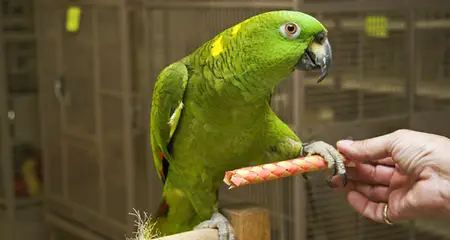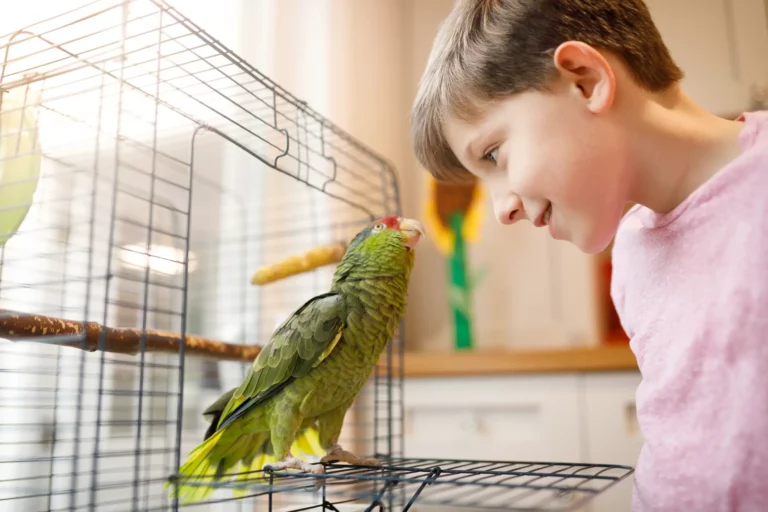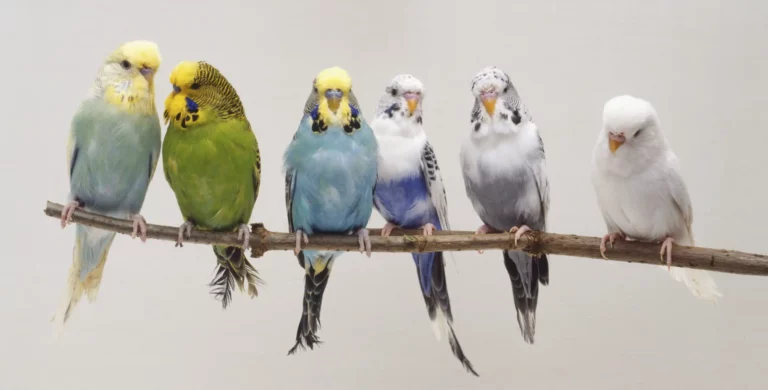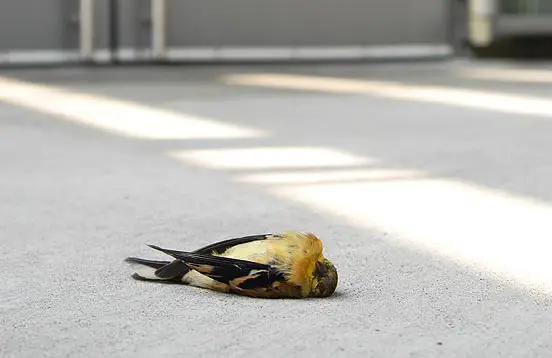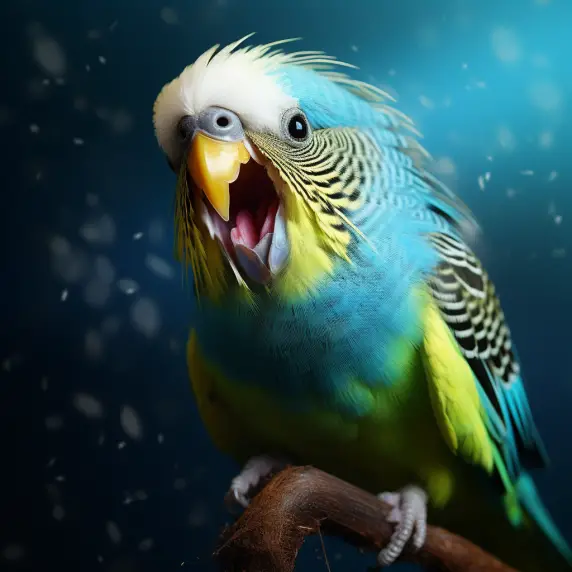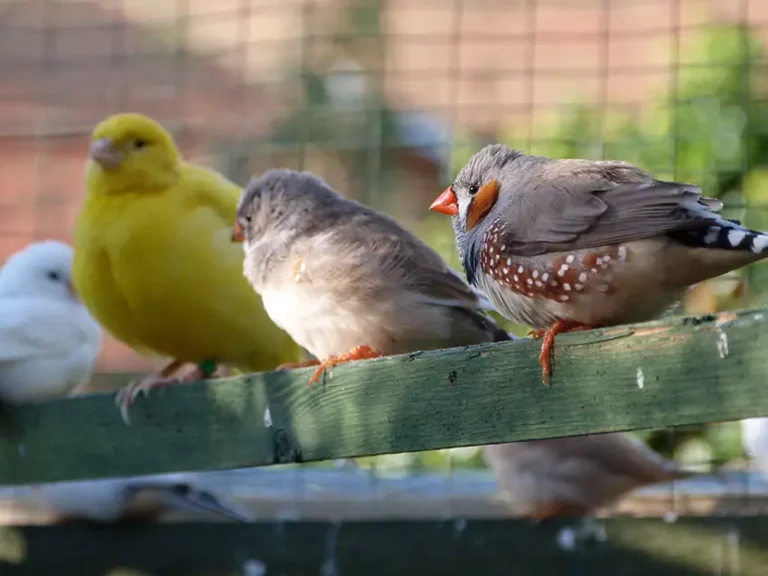10 Reasons Why Your Cockatiel is Screaming All the Time
Your cockatiel screaming can be startling, if not downright distressing. Cockatiels are intelligent, expressive birds, and their vocalizations, including screams, are one of the ways they communicate with their environment and their human companions.
But when does a cockatiel’s normal vocalizing cross over into constant screaming, and why might this happen? In this post, we will explore 10 reasons why your cockatiel might be screaming all the time and offer strategies to handle this behavior.
Here are the key takeaways:
- Cockatiels can scream for various reasons, such as seeking attention, feeling threatened, experiencing discomfort, or reacting to their environment.
- It’s crucial to understand the underlying reasons for the screaming to handle the situation effectively.
- Patience, care, and a calm approach are essential when dealing with a screaming cockatiel.
- It’s essential to rule out medical issues as a potential cause of excessive screaming.
Short Answer: Your cockatiel might be screaming all the time due to a variety of reasons including wanting attention, being scared, feeling ill, being bored, or reacting to a sudden change in environment. Understanding these reasons and addressing them appropriately can help to manage this behavior.
Cockatiel Communication: A Deep Dive into Their Vocalizations
Cockatiels are incredibly vocal birds, and they possess a wide range of sounds and calls. By nature, they’re social creatures, and these vocalizations form an integral part of their communication. Here, we delve into the world of cockatiel vocalizations to better understand why your bird might be resorting to incessant screaming.
Sounding the Alarm
One of the reasons a cockatiel might scream is to sound an alarm. Cockatiels are prey animals, and in the wild, screaming can serve as an effective warning to flock mates of impending danger. If your cockatiel screams suddenly, it might have noticed something out of place or alarming in its environment.
Seeking Attention
Cockatiels, like many parrot species, thrive on social interaction. If your bird screams when you’re in another room, it might be its way of seeking attention or indicating its desire to interact.
Expressing Discomfort or Illness
Sudden screaming might also be a sign of discomfort or illness. Cockatiels aren’t always upfront about their physical condition — a trait that helps them avoid appearing weak to predators in the wild. Therefore, a change in vocalization can often indicate an underlying health problem.
Reacting to Environmental Changes
Cockatiels can also react vocally to sudden changes in their environment. This could be as simple as a new object in the room or as complex as a change in the household’s daily routine. If your cockatiel has suddenly started screaming, consider any recent changes that might be affecting its sense of security or routine.
Reflecting Emotional States
Just as we express our feelings vocally, cockatiels can also use their voices to convey their emotional states. Whether it’s joy, anxiety, fear, or excitement, your cockatiel’s screaming can indicate its emotional mood. Remember, these birds are incredibly sensitive and can pick up on the emotions of those around them.
Signaling Breeding Behaviour
Cockatiels, especially males, may scream more during the breeding season. It’s their way of attracting a mate and staking a claim on their territory. If your bird’s screaming seems seasonally influenced, it could be a natural part of its breeding behavior.
In essence, cockatiel screaming is a form of communication, so don’t dismiss it offhand. It’s crucial to understand the context and causes behind it to appropriately address this behavior.
10 Reasons Why Your Cockatiel Might be Screaming Constantly
Understanding the cause behind your cockatiel’s screaming is the first step to addressing it. Let’s delve into the top 10 reasons why your feathered friend might be raising the volume.
1. Seeking Attention
Your cockatiel may be feeling lonely and trying to get your attention. These social creatures thrive on interaction and may scream when they feel neglected or isolated.
2. Expressing Boredom
A bored cockatiel can become a noisy cockatiel. Lack of stimulation, such as toys, or activities can lead to a screaming habit as your bird tries to entertain itself.
3. Reacting to Stress or Fear
Stress or fear triggers can cause a cockatiel to scream. This might be due to a new environment, the presence of other pets, or loud noises that disturb your bird’s sense of safety.
4. Feeling Physically Unwell
As mentioned before, changes in vocalization, such as increased screaming, could signify that your cockatiel is unwell or in discomfort. Regular vet check-ups are essential to ensure your bird’s health.
5. Experiencing Hormonal Changes
Hormonal changes, especially during the breeding season, can cause your cockatiel to become more vocal. Male cockatiels, in particular, may scream more frequently to attract a mate.
6. Displaying Territorial Behavior
Cockatiels can be territorial, and they might use loud screams to assert dominance or claim a space as their own, especially if there are other birds in the house.
7. Dealing with Diet Issues
A poor or imbalanced diet can make your bird uncomfortable and lead to louder or more frequent screaming. Ensure your cockatiel is getting a nutritionally balanced diet to avoid this issue.
8. Responding to Your Reactions
Cockatiels are smart and can pick up on your reactions. If screaming gets them the attention they want, they might continue this behavior. It’s essential to address this issue carefully to not inadvertently encourage screaming.
9. Mirroring Household Noise Levels
If your home is generally loud, your cockatiel might join in the noise. These birds can mirror the sound levels of their environment.
10. Following Natural Instincts
Finally, remember that some level of noise is natural for cockatiels. They communicate and express themselves through sound, so a silent cockatiel would be more concerning than a vocal one. However, excessive screaming that deviates from your bird’s usual patterns should be investigated to rule out any problems.
Understanding these reasons can help you address your cockatiel’s screaming in a patient, loving, and effective way. Always remember, communication is key when it comes to dealing with your feathery friend.
Gender-Specific Screaming: Why Your Male or Female Cockatiel Might Be Screaming
Different factors can influence male and female cockatiels’ vocal behavior. It’s important to understand how gender might impact their screaming patterns.
1. Male Cockatiel Screaming
Male cockatiels are generally more vocal than their female counterparts. Screaming can be particularly common during the breeding season. They may be trying to attract a mate with their loud vocalizations or marking their territory.
Sometimes, male cockatiels will scream to communicate their emotions, whether it’s excitement, fear, or frustration. It’s essential to pay attention to what’s happening in the environment when the screaming occurs, as it may give you clues about the cause.
2. Female Cockatiel Screaming
Female cockatiels tend to be quieter, but that doesn’t mean they don’t scream. Like males, they might scream due to loneliness, boredom, stress, or illness.
However, they may also scream if they’re about to lay an egg or are experiencing discomfort from egg binding, which is a serious health condition where an egg gets stuck in the reproductive tract.
Also, if they feel threatened or are protecting their nest, female cockatiels can also resort to screaming as a defense mechanism. Always ensure a safe and comfortable environment for your female bird to reduce the risk of stress-related screaming.
In both genders, the key to managing screaming is understanding what triggers it. By identifying and addressing these triggers, you can help your bird feel safer, happier, and, hopefully, a little quieter.
Time-Based Screaming: Understanding Morning and Departure-related Squawking
Cockatiels can exhibit specific vocalization patterns based on the time of day or certain routines in the household. Here’s a look at what could be causing morning screaming or squawking when you leave the room.
1. Morning Screaming
The morning screaming could be your cockatiel’s way of signaling the start of a new day. Birds are naturally programmed to be active with sunrise, and your cockatiel might be enthusiastically greeting the morning with vocalizations.
Moreover, they might be feeling hungry after a long night and could be demanding their breakfast. Providing a consistent morning feeding schedule can mitigate these early dawn concerts.
2. Screaming When You Leave the Room
If your cockatiel screams when you leave the room, it’s likely expressing its social nature. Cockatiels are flock animals and can become attached to their human caretakers. When you leave, they might feel alone or anxious, leading them to scream to call you back.
One solution could be to spend quality time with your bird before you need to leave, ensuring they feel secure and loved. You might also consider getting a companion for your cockatiel, but this should be done with careful consideration of the potential implications for both birds.
Remember, understanding the context of your cockatiel’s vocalizations is the first step toward addressing them. By adjusting routines or providing reassurances, you can help reduce their need to scream.
The Impact of the Environment on Cockatiel Behavior
An often overlooked yet essential factor contributing to your cockatiel’s screaming could be its environment. Cockatiels, like most birds, are highly sensitive to their surroundings. Therefore, environmental factors should not be disregarded when trying to understand the reasons behind your pet’s behaviors.
1. Cage Location and Conditions
Cockatiels are social creatures and prefer to be in the middle of the action. If your cockatiel’s cage is located in a quiet, isolated part of the house, it might be screaming out of loneliness. Moving the cage to a more communal area, where your pet can observe daily activities, may help reduce its distress.
However, it’s important to consider that too much noise and chaos can also be stressful for your bird. Maintain a balance by providing a peaceful environment with enough human activity.
2. Lighting and Sleep Patterns
Improper lighting conditions or disrupted sleep patterns can lead to stressed, screaming cockatiels. Birds require a significant amount of sleep, around 10-12 hours each night. If their cage is located in a brightly lit room during the evening, this can interrupt their sleep cycle, resulting in stress and consequently, screaming.
3. Toys and Mental Stimulation
Cockatiels require mental stimulation and opportunities to play and explore. If your bird doesn’t have enough toys or activities to keep it engaged, it may resort to screaming out of boredom. It’s beneficial to rotate toys regularly to keep your bird’s environment interesting and enriching.
A suitable, well-thought-out environment can play a substantial role in keeping your cockatiel calm and happy. Always remember, a content bird is likely a quiet bird.
Make their surroundings appealing, ensure they have plenty of opportunities for socialization and activity, and you might find your cockatiel’s excessive screaming significantly reduced.
Cockatiel Sounds and What They Mean: Crying, Squawking, and Squeaky Noises
Understanding cockatiel vocalizations is a key step in managing their behavior. By learning what each of their unique sounds means, you can better respond to their needs and possibly curb excessive screaming.
1. Crying Sounds
If your cockatiel makes sounds that resemble crying, they are likely expressing some form of discomfort. This could be due to physical ailments, lack of attention, or wanting something they don’t have.
It’s important to closely observe their behavior when they exhibit this sound, as it will give you a better idea of what they might need.
2. Squawking
Squawking is a typical noise made by cockatiels when they’re upset or frightened. They could be reacting to an environmental change, such as a new piece of furniture, or to a potential threat, like an unfamiliar visitor. Soothing them during these times can help reduce squawking.
3. Squeaky Noises
Squeaky noises from a cockatiel often indicate a playful mood. These noises are generally harmless and are just a way for your cockatiel to communicate its joy and excitement. It’s good to encourage these sounds by providing plenty of toys and playtime for your pet bird.
Remember, each cockatiel is unique and may exhibit slightly different sounds. What holds true for one bird might not hold true for another. However, understanding these general guidelines for what each sound could mean is a valuable starting point in understanding your cockatiel better.
Behavioral Adjustment: Techniques to Reduce the Screaming
If your cockatiel’s screaming becomes disruptive, there are several strategies you can use to mitigate the noise. Always remember that screaming is a natural behavior for these birds. The aim should not be to eliminate it entirely, but rather to manage it and ensure it doesn’t become excessive.
1. Positive Reinforcement
Positive reinforcement involves rewarding your cockatiel for displaying desirable behavior. If your bird remains quiet or uses softer chirps, reward them with treats, praise, or attention. Over time, this encourages them to reduce their screaming and resort to quieter vocalizations.
2. Ignoring the Noise
If your bird screams for attention, ignoring the noise might be an effective strategy. If you react every time your cockatiel screams, you reinforce the idea that screaming is a surefire way to get your attention. Instead, only interact with your bird when they are calm and quiet.
3. Providing Stimulation
Boredom can often lead to excessive noise-making. To prevent this, provide your cockatiel with plenty of mental and physical stimulation. This might include toys, foraging activities, and time outside of their cage.
4. Environmental Modifications
Ensure your bird’s environment is as stress-free as possible. Loud noises, sudden movements, or changes in the environment can cause your cockatiel to scream out of fear or stress. Regular routines, a calm environment, and familiar faces can help alleviate these problems.
Remember, the goal is not to stop your cockatiel from vocalizing but to encourage more acceptable sounds and reduce distressing or disruptive screaming. It’s always essential to approach this with patience and understanding. If you’re concerned about your bird’s behavior, consult with a professional or a vet for further advice.
When to Consult a Vet: Identifying Health Concerns
Sometimes, the reason behind your cockatiel’s excessive screaming could be a health concern. While screaming is a natural part of a cockatiel’s behavior, sudden changes in vocalization patterns, particularly when paired with other symptoms, might indicate underlying health issues.
1. Sudden Changes in Vocalization
If your normally quiet cockatiel suddenly starts screaming excessively, this could be cause for concern. It might be a sign of discomfort or pain, and it’s recommended that you consult a vet if you observe such behavior.
2. Accompanied by Other Symptoms
Excessive screaming accompanied by other symptoms such as loss of appetite, lethargy, or changes in droppings might indicate illness. If your cockatiel is displaying several of these symptoms, it’s crucial to seek professional help promptly.
3. Ineffectiveness of Techniques
If the recommended techniques for reducing screaming are ineffective and your bird seems distressed or behaves unusually, a vet visit might be necessary. The problem could be deeper than a behavioral issue, and it’s always better to be safe than sorry.
Remember, the aim is to ensure your bird’s overall well-being. If your gut tells you something might be wrong, it’s best to consult a professional. They can provide a thorough check-up and give you advice tailored to your cockatiel’s specific needs and conditions.
If the excessive screaming is due to a health concern, addressing it early can prevent more serious complications down the line.
Frequently Asked Questions
In this section, we’ve compiled some frequently asked questions related to cockatiel screaming. The aim is to provide quick, reliable answers to some common concerns that cockatiel owners might have.
1. Is it normal for a cockatiel to scream?
Yes, it is normal for a cockatiel to scream. It’s part of their natural behavior and is one way they communicate. However, excessive screaming could indicate stress, boredom, fear, or even health problems.
2. How do I get my cockatiel to stop screaming?
Establishing a routine, providing mental stimulation, ensuring a balanced diet, and training can help reduce your cockatiel’s screaming. Also, remember that some amount of vocalization is normal and should not be discouraged entirely.
3. Why is my cockatiel making high-pitched noise?
High-pitched noises can be a part of your cockatiel’s vocal repertoire, often used to grab your attention or express excitement. However, if the noise is accompanied by signs of distress or changes in behavior, it might indicate a problem.
4. Why won’t my cockatiel stop screaming when I leave the room?
Cockatiels are flock animals and can become distressed when their ‘flock member’ leaves. This is known as separation anxiety. Providing your cockatiel with toys and ensuring it feels safe in its environment can help alleviate this issue.
5. Why is my male/female cockatiel screaming?
Male and female cockatiels might scream for different reasons, usually linked to their mating behaviors. Males might scream more during the breeding season, while females might scream if they’re feeling broody or if their nest is disturbed.
6. Why is my cockatiel screaming in the morning?
Cockatiels, like many birds, are most active during dawn and dusk (known as being “crepuscular”). They might scream more during these times as a way to express their joy or to communicate with their flock.
Remember, understanding your cockatiel’s behavior and needs is key to addressing excessive screaming. Always consult a vet if you’re concerned about your bird’s well-being.
Conclusion
Cockatiels are lively, vibrant birds, each having its own unique personality and communication style. Screaming is a natural part of their behavior and can mean many things, from expressing joy and excitement to indicating discomfort or stress.
As owners, it’s our responsibility to pay attention to these vocal cues, understand their root causes, and ensure we’re creating an environment that caters to their well-being.
Remember, sudden changes or increases in screaming could be a sign of underlying health issues. It’s always best to consult with an avian vet if you notice any drastic changes in your cockatiel’s behavior.
Above all, the key to a happy, healthy cockatiel lies in understanding and respect. When we take the time to understand our feathered friends’ needs, it results in a more fulfilling, joy-filled relationship for both parties.
Remember that patience, compassion, and care will go a long way in fostering a strong bond with your pet cockatiel.

